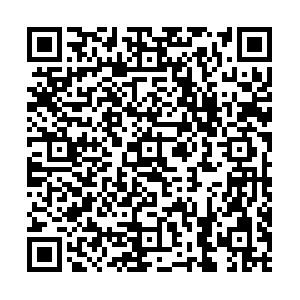-
摘要: 本文首先关注中西方知识和文化传统的比较方法的复杂性,指出传统的“影响”和“平行”研究方法已无法捕捉这些文明系统之间的微妙差异。进而批评这些旧方法,认为它们仅限于表面上的比较,往往忽视了塑造各自传统的丰富历史、政治和文化细节,指出现代的比较任务需要重新思考方法论,以更好地反映中西方动态的、有时甚至是冲突的、不断演变的身份。为此,本文尝试提出了五个引导原则,以构建更具有批判性和阐释效力的比较框架,即:1)关注主题和主题学研究;2)建立共享的“策略性封闭”的参考框架和历史视野;3)追踪集体性的“行动中的人”,强调动态互动(如社会政治运动或意识形态的转变)及其彼此间的“共振”“共鸣”;4)在普遍概念中处理特殊性,在关联系统中组织具体案例分析;以及5)追求整体性诠释。这些原则旨在确保比较不仅仅是学术上的,还应扎根于真实的社会政治背景。通过探索在不同文化背景中产生共鸣的特定主题,认为学者可以在尊重文化独特性的同时揭示共同的人类经验。本文所提出的方法论的一大特点是关注历史和政治力量,认为这是进行中西方有意义比较的关键。呼吁国际学界通过这一框架创造性揭示中西方文化、知识和政治领域如何相互影响、并持续塑造彼此。最终,作者展望了一种比较方法,它不仅推动对文化融合和差异的更深入理解,还超越静态的文化观,采用一种动态的模式,全面理解每个传统的独特复杂性和更广泛的影响。倡导这种方法不仅正视了差异,还为人类共同经验的全球对话做出贡献。
-
关键词:
- 主题学 /
- 摹仿("行动中的人") /
- (策略性)封闭视野 /
- 比较的共鸣箱 /
- 总体论
Abstract: In this article, the author examines the complexities of comparing Chinese and Western intellectual and cultural traditions, and argues that traditional methods like“influence”and“parallel”studies fall short in capturing the nuanced differences between these civilizations. He then critiques these older approaches for being limited to superficial comparisons, which often disregards the rich historical, political, and cultural intricacies that shape each tradition. The author suggests that the contemporary task of comparison requires a rethinking of methodologies that account for the dynamic, sometimes conflicting, and evolving identities within both cultures. To this end, he introduces five guiding maxims to construct a more robust comparative framework: focusing on thematic inquiries, establishing shared frames of reference, highlighting dynamic interactions (such as socio-political movements or ideological shifts), balancing particular cases within universal concepts, and striving for totality in interpretation. These maxims aim to ensure that comparison is not merely academic but grounded in real-world socio-political contexts. By exploring specific themes that resonate across different cultural contexts, the author believes that scholars can illuminate shared human experiences while respecting cultural specificity. A key feature of the proposed methodology of this article is its attention to historical and political forces, which Zhang argues are essential for meaningful comparisons between China and the West. The essay suggests that this framework can reveal how Chinese and Western cultural, intellectual, and political landscapes have shaped—and continue to shape—one another. Ultimately, the article envisions a comparative approach that fosters a deeper understanding of both convergence and divergence, which moves beyond static views of culture to embrace a model that dynamically engages with each tradition's unique complexities and broader implications. This approach, arguably, not only bridges differences but also contributes to a global dialogue of shared human experience.-
Key words:
- Thematics /
- mimetic comparison /
- chamber of resonance /
- particular-universal dialectic /
- totality
-
[1] . Aristotle, Poetics, translated by S. H. Butcher, New York: Hill and Wang, 1969. [2] . Walter Benjamin, Illuminations, translated by Harry Zohn, New York: Schocken Books, 2007. [3] . Barbara Cassin, Emily Apter, and Jacques Lezra eds., Dictionary of Untranslatables: A Philosophical Lexicon, Princeton, NJ: Princeton University Press, 2014. [4] . Eileen J. Cheng and Kirk Denton eds., Jottings under Lamplight, Cambridge, MA: Harvard University Press, 2017. [5] . Johann Peter Eckermann, Conversations of Goethe, translated by John Oxenford, 1906; digital production by Harrison Ainsworth, 2006. [6] . Hans-Georg Gadamer, Truth and Method, 2nd rev. ed., translated by Joel Weinsheimer and Donald Marshall, London and New York: Continuum, 2004. [7] . Samuel P. Huntington, The Clash of Civilizations and the Remaking of World Order, New York: Simon & Schuster, 1996. [8] . Victor Mair ed., The Columbia Anthology of Traditional Chinese Literature, New York: Columbia University Press, 1994. [9] . Friedrich Nietzsche,“The Use and Disadvantage of History to Life,”in Daniel Breazeale, ed., R. J. Hollingdale, trans. Untimely Meditations, Cambridge: Cambridge University Press, 1997. [10] . Friedrich Nietzsche, Human, All Too Human, translated by R. J. Hollingdale, Cambridge: Cambridge University Press, 1996. [11] . Carl Schmitt, The Concept of the Political, translated by George Schwab, Chicago: University of Chicago Press, 2007. [12] . René Wellek and Austin Warren, Theory of Literature, New York: Harcourt, Brace & World, Inc., 1956. [13] . Ludwig Wittgenstein, Tractatus Logico-Philosophicus, translated by D. F. Pears and B. F. McGuinness, London and New York: Routledge, 1974. -

 点击查看大图
点击查看大图
计量
- 文章访问数: 630
- HTML全文浏览量: 103
- PDF下载量: 18
- 被引次数: 0



 下载:
下载:

